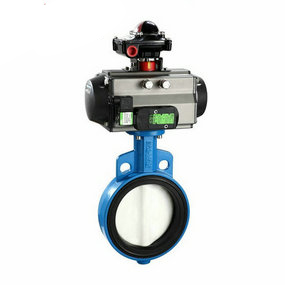How does the air in the switch pattern of vacuum pneumatic butterfly valve come from? Key points of pneumatic ball valve construction:
1. The air pressure of the pneumatic ball valve is related to the diameter of the pneumatic ball valve, the pressure of the newly poured concrete, the construction temperature and other factors. The pressure of the pneumatic ball valve shall be kept within 0.03-0.05MPa (the hole diameter of the reserved holes shall meet the specification requirements and achieve the expected effect).
2. The air release time of the inflatable core mold is related to the construction temperature. Generally, after the concrete pouring is completed, the finger print can be pressed on the concrete surface without deformation of the concrete
3. The key to the construction is whether the position of the preformed hole in the prefabricated hollow slab is accurate or not. When pouring concrete, under the action of the immersion vibrator and concrete, the inflatable rubber atlas has a large buoyancy, and the main reinforcement is easy to float with the pneumatic ball valve at the same time. To affect the construction quality of precast hollow slab, a 0-shaped 6 locating hoop is added on the pneumatic ball valve with a spacing of 300 ram, and the beam end is densified to 200 ram and hooked together with the main reinforcement. This will ensure the position of the holes reserved on the top of the precast slab.
4. The precast slab concrete shall be poured in oblique layers. The material shall be cut from one third of the beam end. The layer thickness shall be controlled at about 0.4m, and the concrete slump shall be controlled at 4cm. The pressure of the inflatable capsule shall be strictly controlled during the construction process. In case of air leakage, the pressure shall be supplemented at any time to ensure the hole forming quality.
5. When using the pneumatic ball valve, the isolating agent must be brushed to reduce the mold drawing resistance. The oil is not allowed to replace the isolating agent for the pneumatic ball valve. On the one hand, the engine oil will corrode the rebar, and on the other hand, the engine oil will pollute the rebar.


